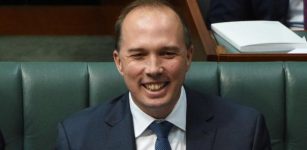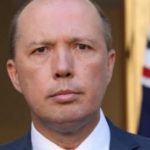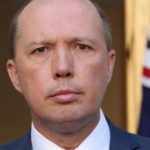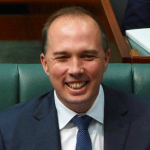The Repeal of Medevac Laws Mean More Power to Peter Dutton

In the past few years, what goes on behind the closed doors of Parliament has become a source of consternation for many Australians who are witnessing a slow undermining of democracy.
This week Parliament reached a new low when a publicly elected official made a ‘secret deal’ that she then refused to talk openly about. Another death-knell, for transparency and accountability, two significant hallmarks of democracy.
The story so far
Earlier this week, Tasmanian Politician Jackie Lambie made a secret deal with One Nation senators and voted to repeal The Medevac Laws which were introduced at the end of last year and allowed sick refugees to be transported to Australia for treatment on the advice of doctors.
The laws were introduced in the last sitting week of last year, and the government has continued to be uneasy about them. It has said they undermine Australia’s national security, and made moves to repeal them. Ms Lambie’s vote meant that now the laws will be scrapped. The vote was 37 to 35.
So, now, when refugees are sick in offshore detention, they are not guaranteed a transfer to Australia for treatment. The repeal means that powers of refusal for medical transfers have been fully restored to home affairs minister Peter Dutton.
No disclosure
Of serious concern, since the vote, Ms Lambie has steadfastly refused to disclose the details of the proposal she put to government, except to say that she made a “really hard decision” to support the repeal of the legislation, but had done so because the government had agreed to an “outcome” that would improve medical treatment for refugees held in offshore detention.
“We’ve worked to an outcome I believe we both want, which is an outcome that our borders are secure, the boats have stopped and sick people aren’t dying waiting for treatment. And as a result of that work … I am more than satisfied that the conditions are now in place to allow medevac to be repealed,” she explained, by way of not really explaining anything at all.
When pressed, she told media she was not being “coy or silly” by not revealing details of her proposal, saying they were of “national security concern”.
Both the Labor Party and the Greens Party have demanded that Australia deserves to know the details of Lambie’s deal with the other parties, but so far their calls have fallen on deaf ears. In fact, Liberal Senator, Mathias Cormann, who was the leader in the government at the time of the vote has denied there even was a secret agreement.
Obviously, most of Australia knows that a certain amount of cajoling and dealing goes on in Parliament. But perpetuating a culture of “keeping the Australian public in the dark” and threatening those who expose information it wants kept hidden has been a hallmark of the current government, leading many to believe we’re moving towards a totalitarian state.
The decline of democracy
The gravity of a number of the laws that have been introduced in recent years, under the guise of protecting us from the threat of terrorism have serious implications for us all. But those intended to silence whistle blowers the media came to light earlier this year, after the Australian Federal Police (AFP) raided the home of journalist Annika Smythe, and the offices of the ABC in relation to stories they had produced which put the government in a particularly unflattering light.
And let’s not forget that in 2015, the government passed the Australian Border Force Act which essentially puts a gag order on any detention centre workers who choose to speak out about the conditions in offshore detention facilities. This means that anyone who exposes corruption or abuse of power by other workers, or the suffering of inmates may risk imprisonment.
The Border Force Act came into being not long after the government tried unsuccessfully to prosecute ten staff of charitable organisation ‘Save the Children’ on Nauru who exposed the treatment that refugees were exposed to. When they revealed the deplorable conditions at Nauru and the harrowing effect on these children, they were referred to the AFP.
Charges were eventually dropped because the existing legislation in force at the time, the ‘Disclosure of Information by Commonwealth Officers’ under section 70 of the Crimes Act 1914 Commonwealth, punishable by up to two years imprisonment, was not broad enough to cover the workers.
The Border Force Act now makes it much easier for the government to prosecute a broad range of people who might reveal information that the government wants hidden.
And while alarm bells are ringing for most Australians, wondering about their rights to freedom of speech, and the future of democracy, the simple fact remains – we do not have a bill of rights and there is nothing in the Australian constitution to protect us







